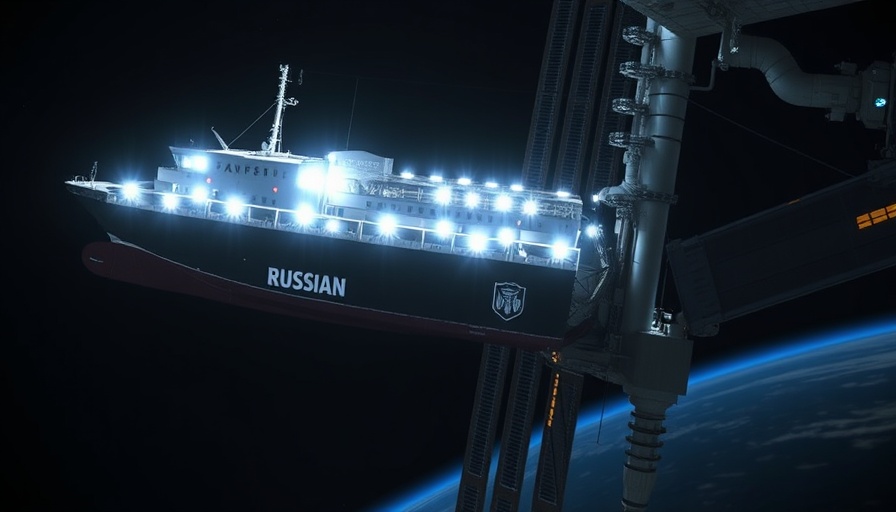
Russia's Progress MS-30: A New Era of Supply Deliveries to the ISS
The International Space Station (ISS) welcomed a fresh load of essential supplies and innovative scientific equipment when Russia's Progress MS-30 cargo spacecraft successfully docked on March 1, 2025. Launched from Kazakhstan's Baikonur Cosmodrome just two days prior, this uncrewed spacecraft has become a vital component of the ISS supply chain, supporting astronauts living and working in the unique environment of space.
Innovative Supplies on Board Fuel Scientific Exploration
Progress MS-30, also known as Progress 91 by NASA, delivered approximately three tons (5,730 pounds) of cargo, including food, clothing, and medical supplies for the ISS crew. Notably, this mission brought aboard a new Orlan-MKS spacesuit designed for Russian spacewalks, equipped with state-of-the-art features like enhanced durability and automated cooling systems. This innovation represents significant advancements in astronaut gear, which is essential for maintaining astronaut safety and comfort during extravehicular activities.
The Role of Progress MS-30 in Scientific Research
This mission not only focuses on crew well-being but also emphasizes scientific exploration. The cargo includes tools for conducting experiments related to microbal growth on various surfaces, cultivation of micro-algae for potential food sources, and equipment for producing advanced semiconductor crystals. These experiments will enhance our understanding of living and working in space, addressing questions vital for future missions, including long-duration stays on lunar bases or even Mars.
Significance of Ongoing Space Collaboration
The successful docking of Progress MS-30 highlights the importance of international partnerships in space exploration. While political tensions may rise on Earth, the collaboration surrounding the ISS often stands as an example of unity. With contributions from Russia, the U.S., and various other countries, the ISS remains a global laboratory for research that benefits all of humanity.
The Future of Space Missions and Technology
As we look ahead, the continued operation and upgrading of cargo spacecraft like Progress MS-30 will be crucial. With plans to further explore deeper space, advancements in cargo technology will facilitate longer missions, less reliance on terrestrial resupply, and potentially pave the way for new horizons in human space exploration. Recent advancements promise to enhance safety while reducing costs, making ambitious projects more feasible.
In conclusion, the Progress MS-30 mission delivered far more than supplies. It represents ongoing innovation in the space industry and collaboration among nations, ultimately driving forward our collective efforts in space exploration. It is essential to keep track of these developments as they will shape the future of human presence in space.
 Add Row
Add Row  Add
Add 




Write A Comment